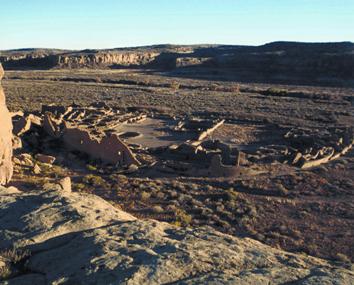(Real quick...could you occasionally click on one of the ads? They're from Google and are safe. Just need to generate a little revenue for this site so I can keep it on Squarespace. Thanks!)
There’s an article out today from a professor at Western University in Ontario Canada named Elizabeth Greene. She is a Classical Studies professor in the Faculty of Arts and Humanities. The article is entitled “The Future of the Past”.
Greene mentions that students always ask her whether everything has already been found. Of course she tells them that there are still many things to find and many questions to answer. The part of the article I want to talk about concerns the following:
Forty years ago, archaeologists weren’t too concerned to take a soil sample of every square meter (sic) of earth they removed the way we are today; or to consider microscopic data such as seeds and pollen analysis to discover new info about landscape and diet of people in the past; nor did they use isotope analysis of teeth to discover where an individual spent their childhood.

When I record sites here in the Great Basin they usually aren’t as glamorous as Pueblo Bonito or as full of data potential, however, there is still a lot that can be learned. At my last company there was a tendency to only record what was necessary to determine whether the site was eligible for listing on the National Register of Historic Places (NRHP) or not. There are people there now that will essentially guess at attributes and quantities for large can dumps and complex features. They feel that the site is not important enough to give a detailed recording effort to. I disagree (one of the reasons I was laid off, I’m sure).
Can Scatter, Nevada.When someone determines that a site is not eligible for listing on the NRHP they give the client the go ahead to destroy the site at will. That’s especially true here in the Great Basin where the site will likely be consumed by a massive open pit mine at some point. So, when I record a site, I record as many attributes about the artifacts and features that I can. My feeling is that even though I may not be able to get much out of an artifact right now there may be analytical methods or techniques in the future that will be able to benefit from my recording. Unlike Pueblo Bonito, you can’t go back to many of these sites and record additional information since it will likely have been destroyed.
This is one of the reasons why I want to reduce the cost of site record preparation and report writing time by utilizing digital recording methods. It will allow people to spend more time in the field and less time in the office without charging the client more for the same product. The client can be happy while the archaeologist is ethically satisfied that they did their scientific duty.
We aren’t going to get clients to pay more for our work. They already see us as an impediment to getting their permits and to completing their projects. So, it’s up to us to change the way we do our jobs with the use of technology so we can maintain high ethical and scientific standards while charging the client a fair price at the same time.
Thanks for reading and I’ll see you in the field.
Reference:
Greene, Elizabeth M.
2012 The Future of the Past. Western News 16 November: http://communications.uwo.ca/western_news/stories/2012/November/future_of_the_past.html. London, Ontario, Canada.
